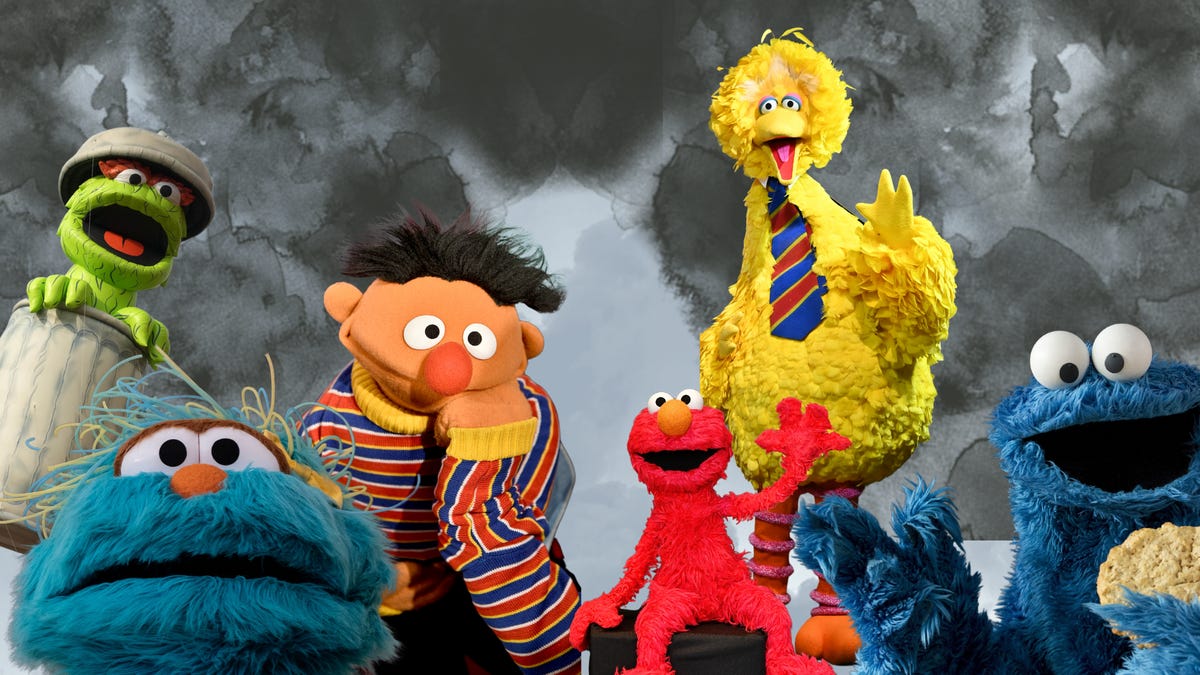When this month, the Trump Administration announced plans to axe the grant that once helped to power “Sesame Street,” a powerful poem came to mind.
What’s the difference between a child’s brain and a ball of putty? It’s smaller than you might think.
Easily molded and warped, the folds not yet folded − metaphorically speaking, of course − how young people take in the world is as much up to the world as it is to them.
Perhaps that’s why, in years past, the government has shelled out a few bucks (ahem, $5 million) to help pay the rent of various fuzzy and colorful tenants on “Sesame Street.” Moved briefly to HBO, the show is now back at PBS − and on Netflix − soon to premiere new episodes across the public airwaves for children from Alaska to Alabama to Altadena to get a little schooling and song for free.
A live-action, if not sillier version of Jane Jacobs’ sidewalk ballet, the children’s show distills a difficult world into easily understandable lessons: difference is powerful, for example, or it’s good to say you’re sorry.
When President Donald Trump’s administration in early May announced plans to axe The Ready To Learn grant, which doles out funds to public television stations, historically for children’s programming like “Sesame Street,” I thought immediately of those lessons lost.
Some of the edicts may feel milquetoast, classic practices of polite society that we all have to learn. But anyone who sticks around for long enough will notice a more insurgent teaching at play: build your identity, guard it, and do it on purpose.
That was at least the central tenet of a chant Reverend Jesse Jackson led in a 1971 appearance on the show, entitled “I am somebody.”
“I may be poor,” Jackson says, “but I am,” he continues, “somebody,” the real-life children who have seemingly wandered onto “Sesame Street” repeating each phrase after he drops it. The format remains roughly the same throughout, with Jackson offering up various “I may be’s,” and the children echoing defiantly back: “But I am somebody.” It’s a less Black-power oriented version of a poem Jackson first published in 1970.
“I am Black, Brown, White, I speak a different language, but I must be respected, protected, never rejected,” he finishes. “I am God’s child. I am somebody.”
It’s a call and response I got to know well when, starting in the early 1990s, my father and his team-teacher wove it into their high school curriculum. Hip to its enduring wisdom, they felt it was as appropriate for a group of 17- and 18-year-olds as it was for kindergarteners.
They would go out into parks on field trips or the quad at the California high school where they taught and chant loudly, early adopters, I guess, of the wellness-y affirmations that would rise to popularity decades later. Saying it aloud, they thought, would help their students believe it.
“Sesame Street” may be safe now, subsidized by Netflix’s big bucks, but children’s programming like it is still worth government investment.
When the public airwaves grow dry of civic-minded shows, and teaching worthiness to our children becomes an activity safeguarded behind the fences that make good neighbors, our social fabric frays.
‘Somebody’ may seem like something pretty ordinary to be. But as my father and his teaching partner, Jesse Jackson and Big Bird all understood, to believe that everybody is somebody is a radical idea. And one America desperately needs right now.
While our children’s brains are still like putty, there couldn’t be a more worthy cause than publicly funded children’s television that teaches the next generation to ask: “Who are the people in my neighborhood?” And whether the answer is a bright blue cookie fiend or a regular day-laborer, lawyer, hairdresser, first-generation, fifth-generation, neo-con, libertarian, democratic socialist or whatever falls in between – to answer with that radical affirmation “they are somebody. And so am I.”

Leave a Reply